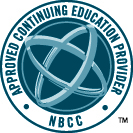
Mental Health Facilitator

Frequently Asked Questions
The MHF program does not create a new profession. Rather, it is a training curriculum and registry program to complement existing mental health resources within a community by training first responders.
MHF training teaches fundamental mental health knowledge and skills, including response and referral. Individuals who come into contact with people in their work—especially vulnerable populations (e.g., children, older adults) or people in tenuous situations (e.g., refugees, victims of disasters)—can apply this knowledge to better assess, assist, and assign or refer to a mental health professional when needed.
Individuals who complete the full training for an MHF curriculum automatically join the MHF registry. This is the only way to achieve MHF registration.
"MHF" is an abbreviation for "Mental Health Facilitator." It is not a professional designation, such as a professional license or certification. Although it is OK to refer to yourself informally as an MHF, it is not acceptable to include the letters after your name.
Mental health is one of the most neglected aspects of health care. Individuals with MHF training complement existing resources in a community by helping anyone who appears to have a mental health–related problem. They can also use their knowledge of community resources for referral purposes, to advocate for others, and to fight stigma.
The MHF training introduces basic mental health concepts and helping skills to trainees. It does not have the breadth or depth of more advanced mental health training, such as that which leads to an academic degree, professional certification, or license to practice.
MHFs do not compete with other mental health providers. They complement existing resources and refer individuals to mental health providers as appropriate. Referral skills training is part of all MHF curricula.
You do not need additional training. If you have the opportunity to learn more from a mental health professional, we encourage you to do so.
Published qualitative outcome research includes program effectiveness in Malawi, Mexico, and Uganda and a quantitative article evaluating data from multiple countries.
MHFs can work in a wide variety of settings, such as schools, hospitals, clinics, colleges and universities, daycare centers and orphanages, community centers, and many others.
All MHF trainings are facilitated through contracted partnerships. Once a partnership is created, they are able to hold trainings in their own communities. Please complete the Questions box below or email us at mhfinfo@nbcc.org to let us know if you and/or your organization are interested in becoming an MHF partner and we would be happy to set up a call for additional information.
NBCC Foundation has been approved by NBCC as an Approved Continued Education Provider, ACEP No. 805. Programs that do not qualify for NBCC credit are clearly identified. NBCC Foundation is solely responsible for all aspects of the programs.

